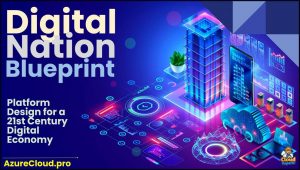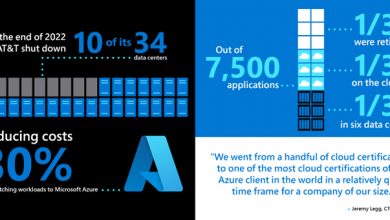Blockchain and Identity Foundations for a 21st Century Digital Economy
As countries continue to develop and implement National Blockchain Roadmaps, they are laying the foundation for a digital economy that is inclusive, efficient, and secure.
 Technologies like Identity and the Blockchain provide the building block foundations for integrated, seamless and secured digital services.
Technologies like Identity and the Blockchain provide the building block foundations for integrated, seamless and secured digital services.
Digital IDs provide a single method to confirm an individual’s identity online, and allow individuals to share information about their identity—such as age or nationality—during a transaction.
Governments across the world are implementing digital identity metasystems that facilitate the core login functions and enable interoperation between online applications.
Examples include the UK Government’s identity scheme, the ‘DIATF‘ – Digital Identity and Attributes Framework, which enables and implements ‘One Login for Government‘. Eight agencies are now using the platform, such as the Disclosure and Barring Service, Department for Business and Trade, HM Revenue and Customs, HM Land Registry and Social Work England, with driving licences and passports used for identity checking.
National Blockchain Roadmaps
Countries including the UK, Scotland, Australia, Malaysia and India have developed National Blockchain Roadmaps. National Blockchain Roadmaps serve as a blueprint for countries to build a resilient and innovative digital economy in the 21st century.
By leveraging blockchain technology, countries can:
- Enhance Data Security and Privacy.
- Improve Transparency and Accountability.
- Streamline Business Processes.
- Enable Seamless Cross-Border Transactions.
- Foster Innovation and Entrepreneurship.
- Empower Citizens with Digital Identities.
As countries continue to develop and implement National Blockchain Roadmaps, they are laying the foundation for a digital economy that is inclusive, efficient, and secure.
Digital Economy
Countries collaborate with industry experts, academia, and blockchain developers to create a comprehensive roadmap that aligns with the country’s economic goals and technological capabilities. India describes:
“To create trusted digital platforms through shared Blockchain infrastructure; promoting research and development, innovation, technology and application development; and facilitating state of the art, transparent, secure and trusted digital service delivery to citizens and businesses, thus making India a global leader in Blockchain Technology.”
National Blockchain Roadmaps outline specific focus areas such as regulatory frameworks, infrastructure development, talent acquisition, and use cases for blockchain implementation in key sectors. Malaysia defines that:
“Blockchains will be a critical drive factor in Malaysia’s digital transformation, which can be effectively undertaken and managed through five ecosystem building blocks, in particular Collaboration, Amplifier, Talent, Legal & Governance, and Enablers, abbreviated as CATLE.”
Education
Blockchain in education offers tamper-proof digital records for qualifications, streamlining storage, sharing, and transfer of academic credentials while preventing fraud. It improves data management with a secure, decentralized database for educational records.
Decentralised learning platforms enable peer-to-peer learning and credentialing, fostering a flexible, merit-based system. Additionally, blockchain allows institutions to track funding sources transparently, ensuring effective resource allocation.



